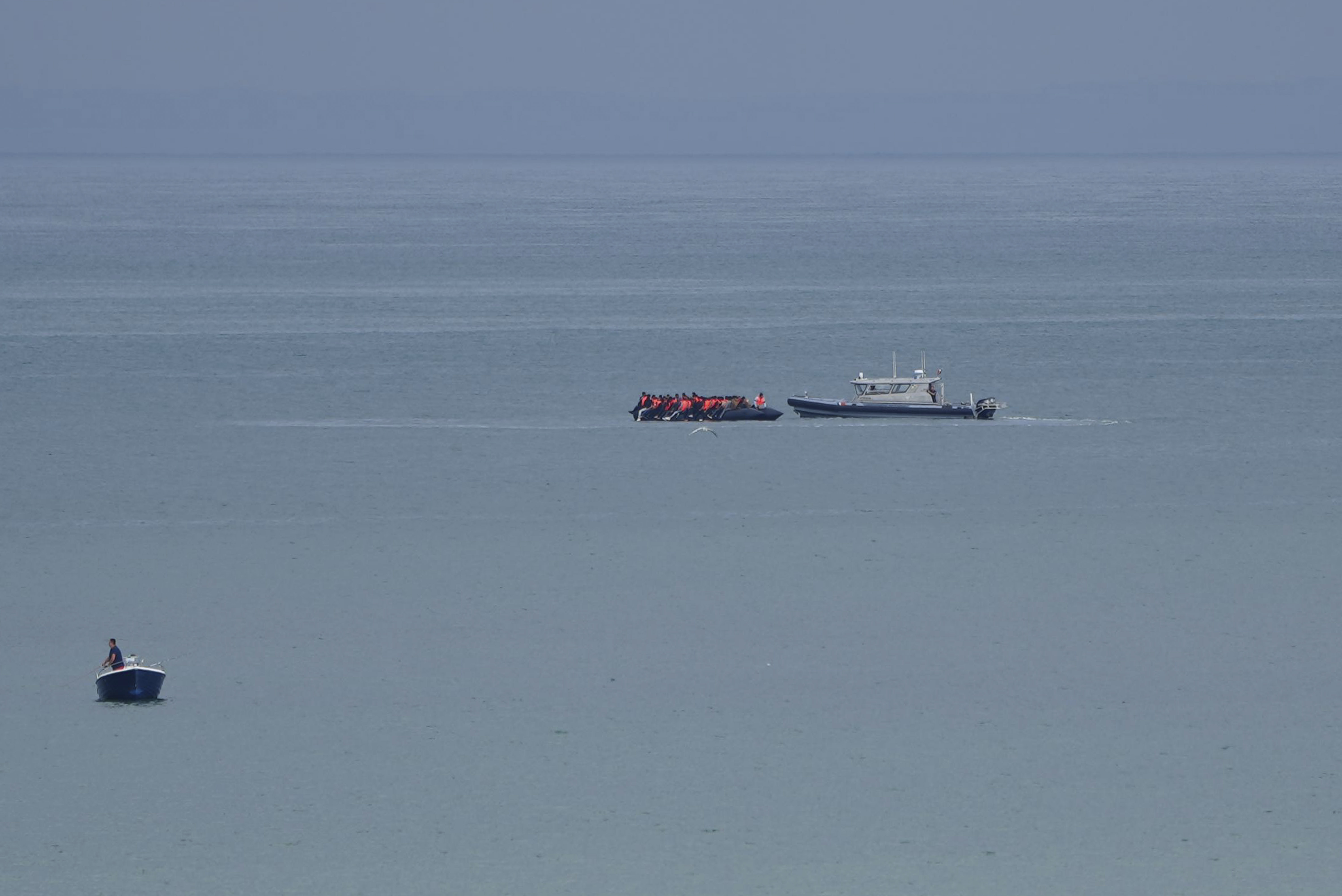
The threat of polio is rising fast in the Gaza Strip, prompting aid groups to call for an urgent pause in the war so they can ramp up vaccinations and head off a full-blown outbreak. One case has been confirmed, others are suspected and the virus was detected in wastewater in six different locations in July.
Polio was eradicated in Gaza 25 years ago, but vaccinations plunged after the war began 10 months ago and the territory has become a breeding ground for the virus, aid groups say. Hundreds of thousands of displaced Palestinians are crowded into tent camps lacking clean water or proper disposal of sewage and garbage.
To avert a widespread outbreak, aid groups are preparing to vaccinate more than 600,000 children in the coming weeks. They say the ambitious vaccination plans are impossible, though, without a pause in the fighting between Israel and Hamas.
A possible cease-fire deal couldn't come soon enough.
Get top local stories in San Diego delivered to you every morning. >Sign up for NBC San Diego's News Headlines newsletter.
“We are anticipating and preparing for the worst-case scenario of a polio outbreak in the coming weeks or month,” Francis Hughes, the Gaza Response Director at CARE International, told The Associated Press.
The World Health Organization and UNICEF, the United Nations children's agency, said in a joint statement Friday that, at a minimum, a seven-day pause is needed to carry out a mass vaccination plan.
U.S. & World
The U.N. aims to bring 1.6 million doses of polio vaccine into Gaza, where sanitation and water systems have been destroyed, leaving open pits of human waste in crowded tent camps. Families living in the camps have little clean water or even soap to maintain hygiene and sometimes use wastewater to drink or clean clothes and dishes.
At least 225 informal waste disposal sites and landfills have cropped up around Gaza — many close to where families are sheltering, according to a report released in July by PAX, a Netherlands-based nonprofit that used satellite imagery to track the sites.
Polio, which is highly contagious and transmits mainly through contact with contaminated feces, water or food, can cause difficulty breathing and irreversible paralysis, usually in the legs. It strikes young children in particular and is sometimes fatal.
The aid group Mercy Corps estimates some 50,000 babies born since the war began have not been immunized against polio.
WHO and UNICEF said Friday that three children are suspected of being infected and that their stool samples were being tested by a laboratory in Jordan. The Ministry of Health in Ramallah in the West Bank said late Friday that tests conducted in Jordan confirmed one case in a 10-month-old child in Gaza.
“This is very concerning," UNICEF spokesperson Ammar Ammar said Saturday. "It is impossible to carry out the vaccination in an active war zone and the alternative would be unconscionable for the children in Gaza and the whole region.”
Aid workers anticipate the number of suspected cases will rise, and worry that the disease could be hard to contain without urgent intervention.
“We are not optimistic because we know that doctors could also be missing the warning signs,” said Hughes of CARE International.
Health workers in Gaza are gearing up for a mass vaccination campaign to begin at the end of August and continue into September. The goal is to immunize 640,000 children under the age of 10 over two rounds of vaccinations, according to WHO.
The Israeli military body responsible for Palestinian civilian affairs, which goes by the acronym COGAT, said it is “preparing to support a comprehensive vaccination campaign.” And Hamas said in a statement Friday that it would support a seven-day truce to facilitate the vaccinations. Cease-fire talks resume in Cairo next week.
The alarm over polio was first raised when the WHO announced in July that sewage samples collected from six locations in Khan Younis and Deir al-Balah, in the south and center of Gaza, tested positive for a variant of the virus used in vaccines. The weakened form of the virus used in vaccines can mutate into a stronger version and cause an outbreak in areas that lack proper immunization, according to WHO.
The only countries where polio is endemic are Afghanistan and Pakistan. But outbreaks of the vaccine-derived virus have occurred in war-torn Ukraine and Yemen, where conditions aren't nearly as bad as they are in Gaza.
Part of the challenge in Gaza, where polio hasn't been seen in a quarter-century, is to raise awareness so that health workers recognize symptoms, the U.N. says. The territory's health care system has been devasted by the war, where workers are overwhelmed treating the wounded, and patients sick with diarrhea and other ailments.
Before the war, 99% of Gaza's population was vaccinated against polio. That figure is now 86%, according to WHO. The goal is to get polio immunization levels in Gaza back above 95%.
While more than 440,000 doses of polio vaccine were brought into Gaza in December, that supply has diminished to just over 86,000, according to Hamid Jafari, director of polio eradication for the WHO Eastern Mediterranean Region.
The 1.6 million oral doses being brought into Gaza will be a more advanced version of the vaccine that is less prone to mutating into an outbreak, the WHO said.
Getting the vaccine into Gaza is just the first step.
U.N. workers face difficulties retrieving medical supplies and other aid because of Israel’s military assaults, fighting between troops and Hamas, and increasing lawlessness that has led to the looting of convoys.
Also, vaccines must be kept refrigerated, which has become difficult in Gaza, where electricity is scarce. About 15-20 refrigerated trucks serve all of Gaza, and they also must be used to transport food and other medical supplies, said a senior Israeli army official with COGAT who was not authorized to talk with media and spoke on condition of anonymity.
Palestinians also face difficulties getting around. Their inability to reach health facilities will be an additional obstacle to the vaccination campaign, said Sameer Sah of Medical Aid for Palestinians.
“There’s no transport system. The roads have been destroyed and you have quadcopters shooting at people,” said Sah, referring to Israeli drones that often carry out strikes. Israel says its strikes target Hamas militants.
WHO said a pause in the fighting is vital to enabling “children and families to safely reach health facilities and community outreach workers to get to children who cannot access health facilities.”
Only about a third of Gaza’s 36 hospitals and 40% of its primary health care facilities are functioning, according to the U.N. But the WHO and UNICEF say their vaccination campaign will be carried out in every municipality in Gaza, with help from 2,700 workers.
___
Associated Press writers Melanie Lidman in Tel Aviv, Israel, and Samy Magdy in Cairo contributed to this report.



